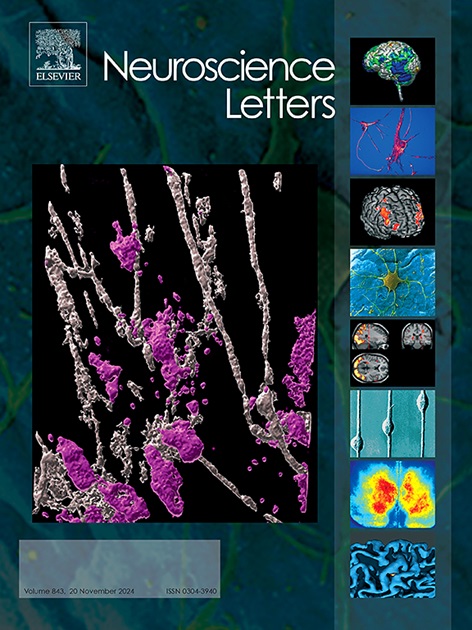Neurometabolic substrate transport across brain barriers in diabetes mellitus: Implications for cognitive function and neurovascular health
IF 2.5
4区 医学
Q3 NEUROSCIENCES
引用次数: 0
Abstract
Neurometabolic homeostasis in the brain depends on the coordinated transport of glucose and other essential substrates across brain barriers, primarily the blood-brain barrier and the blood-cerebrospinal fluid barrier. In type 2 diabetes mellitus (T2DM), persistent hyperglycemia disrupts these processes, leading to neurovascular dysfunction and cognitive impairment. This review examines how T2DM alters glucose and neurometabolite transport, emphasizing the role of glucose transporters and the astrocyte-neuron lactate shuttle in maintaining cerebral energy balance. Reduced expression of glucose transporters and impaired neurovascular coupling are key contributors to cognitive decline in T2DM. Additionally, the review highlights insulin’s pivotal role in the hippocampus, where it enhances neuro-glial coupling and modulates astrocyte glucose uptake to support neuronal energy demands. Synthesizing current findings, we underscore the importance of therapeutic strategies aimed at correcting glucose transport dysregulation to alleviate diabetes-associated cognitive decline.
糖尿病患者跨脑屏障的神经代谢底物转运:对认知功能和神经血管健康的影响
大脑中的神经代谢平衡依赖于葡萄糖和其他底物通过大脑屏障(主要是血脑屏障和血脑脊液屏障)的动态运输。在 2 型糖尿病(T2DM)患者中,慢性高血糖会导致这种平衡被打破,从而引起神经血管和认知功能障碍。本综述将重点讨论 T2DM 中葡萄糖和其他神经代谢物的转运动态变化,尤其强调葡萄糖转运体和星形胶质细胞-神经元乳酸穿梭在维持大脑能量平衡中的作用。在 T2DM 中,葡萄糖转运体的表达减少和神经血管耦合受损会导致认知能力下降。此外,文章还强调了胰岛素在海马中的关键作用,胰岛素可增强神经-神经胶质细胞耦合,调节星形胶质细胞的葡萄糖摄取,从而支持神经元的能量需求。这篇综述综述了目前关于葡萄糖转运失调、神经血管功能障碍和认知障碍之间相互作用的研究结果,强调了针对性治疗方法对缓解糖尿病相关认知功能下降的重要性。
本文章由计算机程序翻译,如有差异,请以英文原文为准。
求助全文
约1分钟内获得全文
求助全文
来源期刊

Neuroscience Letters
医学-神经科学
CiteScore
5.20
自引率
0.00%
发文量
408
审稿时长
50 days
期刊介绍:
Neuroscience Letters is devoted to the rapid publication of short, high-quality papers of interest to the broad community of neuroscientists. Only papers which will make a significant addition to the literature in the field will be published. Papers in all areas of neuroscience - molecular, cellular, developmental, systems, behavioral and cognitive, as well as computational - will be considered for publication. Submission of laboratory investigations that shed light on disease mechanisms is encouraged. Special Issues, edited by Guest Editors to cover new and rapidly-moving areas, will include invited mini-reviews. Occasional mini-reviews in especially timely areas will be considered for publication, without invitation, outside of Special Issues; these un-solicited mini-reviews can be submitted without invitation but must be of very high quality. Clinical studies will also be published if they provide new information about organization or actions of the nervous system, or provide new insights into the neurobiology of disease. NSL does not publish case reports.
 求助内容:
求助内容: 应助结果提醒方式:
应助结果提醒方式:


